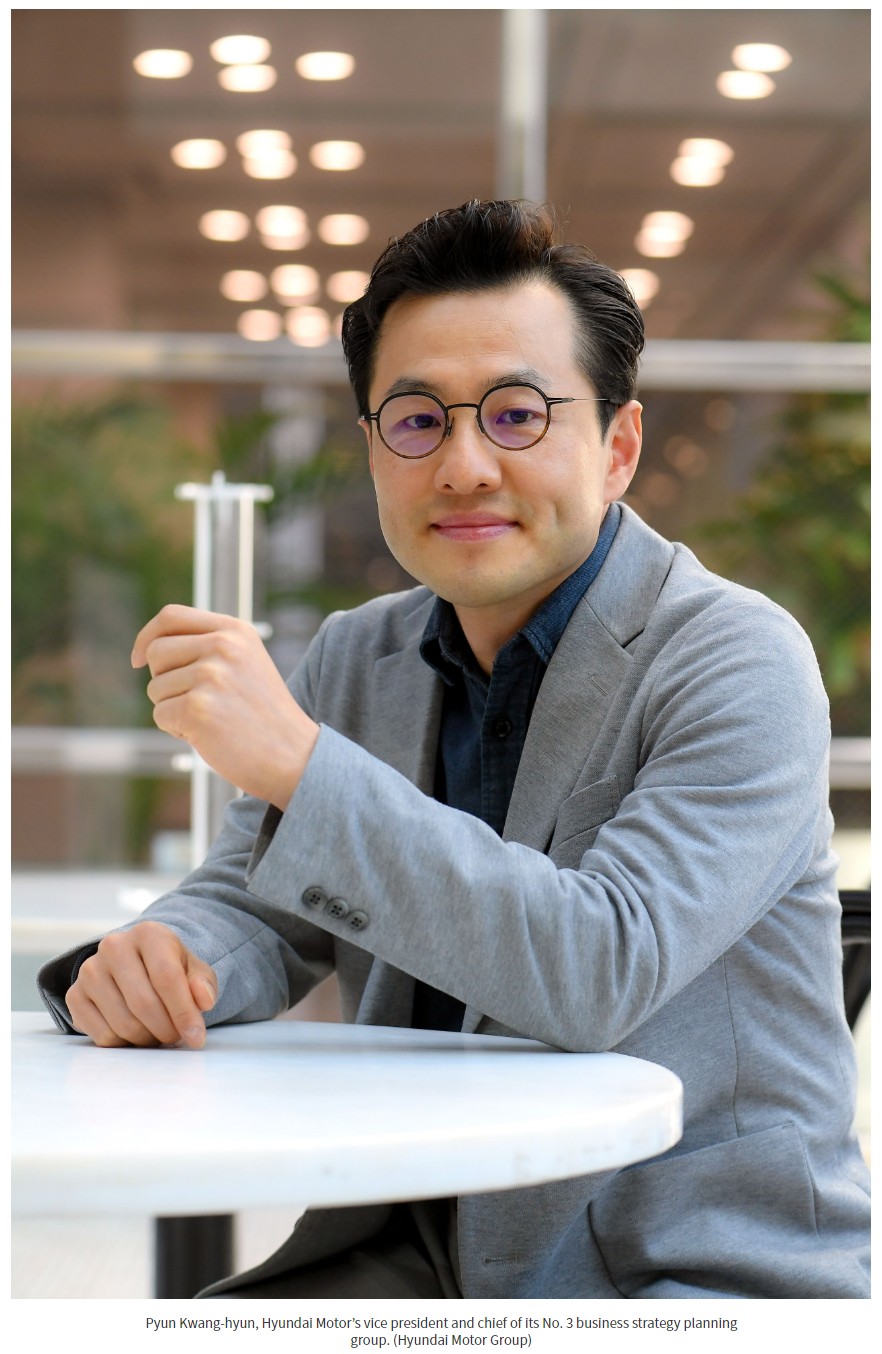
The Korea Herald is publishing a series of interviews with executives of South Korea’s leading corporations on their responses to environmental, social and corporate governance, or ESG, issues, which have become central factors globally in measuring the sustainability of an investment or business decision. -- Ed.
For Hyundai Motor Group, South Korea’s second-largest conglomerate by assets and its top automaker, the increasingly popular concept of ESG -- an emphasis on environmental, social and corporate governance factors in management decisions -- is both a key challenge and a new opportunity.
While the added requirements create pressure for the carmaker, they have also prompted it to strengthen its business constitution and gain the upper hand in the fast-evolving global market.
It was for this reason that the group decided to push ahead with ESG initiatives this year, with the launch of a committee dedicated solely to the mission, according to a senior official.
“This year will mark a turning point in sustainability policy operations and ESG assessment,” Pyun Kwang-hyun, Hyundai Motor’s vice president and chief of its No. 3 business strategy planning group, told The Korea Herald in an interview.
“Sustainability reports have so far sought to effectively display the company’s business performance figures, but in the future, the focus will be to provide the company’s mid- and long-term vision in light of ESG.”
At its regular shareholders meeting last month, the auto group renewed and expanded its committee on management transparency into one dedicated to sustainable management, which Pyun said was the conglomerate’s answer to the rising ESG calls globally.
The move was also seen as reflecting the leadership of Chairman Chung Euisun, who officially rose to the top post in October last year, succeeding his father, Chung Mong-koo.
“While discussing ways to better embrace ESG drives, we decided that it would be more efficient to realign the already existing organizations, instead of adding an entirely new one,” Pyun said.
Unlike its peers, Hyundai Motor chose to allocate its ESG functions under the more comprehensive slogan of “sustainability.”
“Keywords have changed over the past decade, from corporate social responsibility, creating shared value, to ESG, which all come down under the concept of sustainability,” he said.
Another reason for choosing the term sustainability was to pursue a balance of the three areas -- environmental, social and governance -- he added.
“The environmental and social aspects are relatively easier to assess upon quantitative criteria, but the governance sector can be rather abstract as it involves decision-making processes and communication methods, instead of tangible outputs,” Pyun said.
“In order to address such governance factors, we needed to take a fundamental and progressive approach, such as a comprehensive committee that will deal with sustainability issues in general.”
According to the Dow Jones Sustainability Indices, social factors count for 49 percent of the evaluation, while environmental and governance factors are worth 31 percent and 20 percent, respectively.
“The term ESG tends to be most closely affiliated with environmental issues. Hyundai Motor, being the automaker that we are, has also placed much focus on developing eco-friendly vehicles, building a hydrogen ecosystem and achieving carbon neutrality,” Pyun said.
“But in terms of overall strategy balance, environment is one of the key components of our business vision, along with mobility innovation, transportation safety and others.”
So, under the slogan of sustainability, the new committee will continue to perform the roles previously played by the transparent management committee and also assume responsibility for the group’s ESG operations.
Within the committee, the creating shared value strategy team will take charge of ESG activities -- establishing related corporate policies, assessing corporate activities from an ESG perspective and issuing sustainability reports on a regular basis.
The group is considering changing the name of the team, depending on how its work scope and role change, Pyun added.
Another key function of the renewed committee will be to supervise the group’s compliance with the country’s enhanced regulations on industrial safety, according to the vice president. According to the revised Occupational Safety and Health Act, companies with 500 or more employees are obligated to submit yearly road maps showing how they will ensure workers’ health and safety.
Backing up its ESG initiatives, Hyundai Motor and its sister brand Kia Corp. decided earlier this year to issue green bonds worth more than 1 trillion won ($894.85 million) combined.
The 400 billion won raised in bonds by Hyundai Motor will be spent entirely on research and development for all-electric vehicles, including the recently launched Ioniq 5 and the upcoming EV under the premium independent brand Genesis.
“The main goal was to secure liquidity amid the COVID-19 pandemic and also to progressively increase investments in eco-friendly vehicles,” Pyun said.
“This year, we chose to issue ESG bonds to secure short-term liquidity amid the global pandemic. But in the longer term, the fundamental solution will be to increase profitability and to figure out a more sustainable investment road map,” he added.
By Bae Hyun-jung (tellme@heraldcorp.com)
http://www.koreaherald.com/view.php?ud=20210411000103&np=1&mp=1